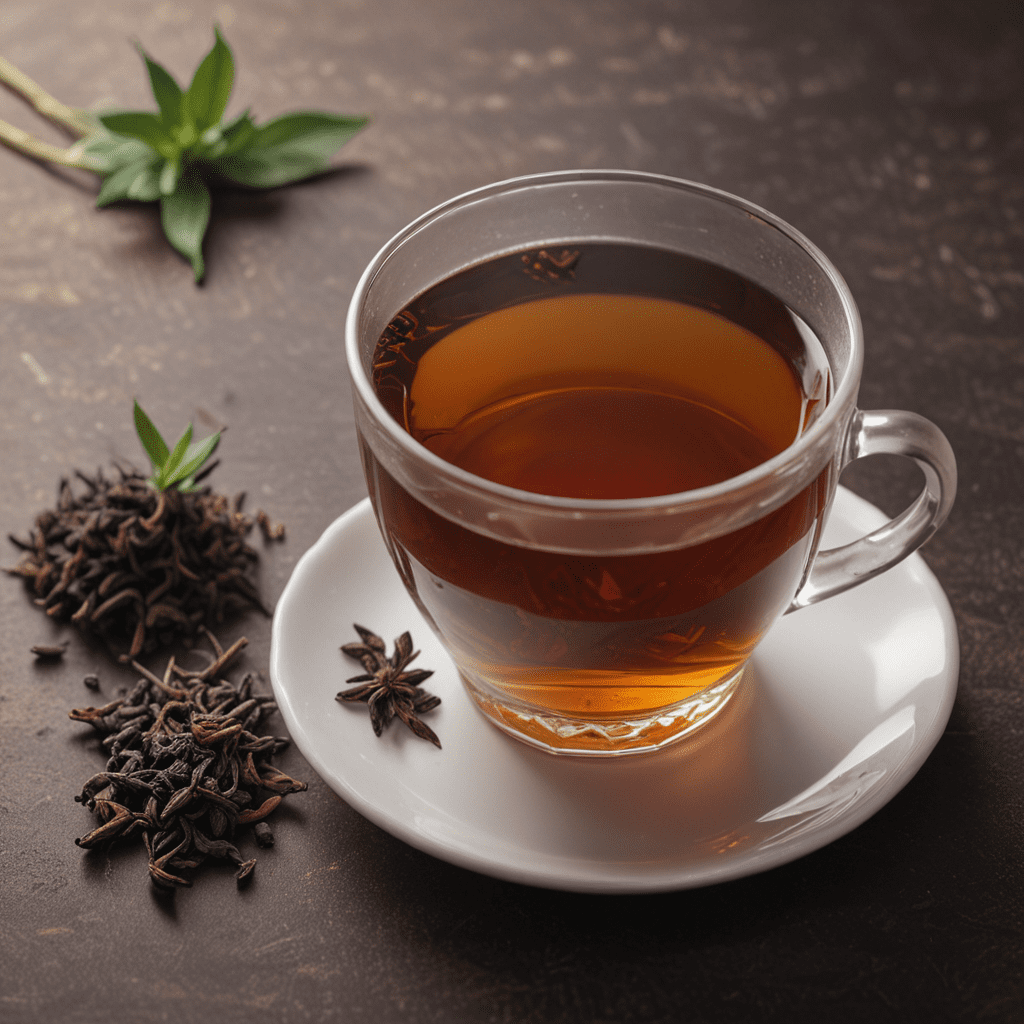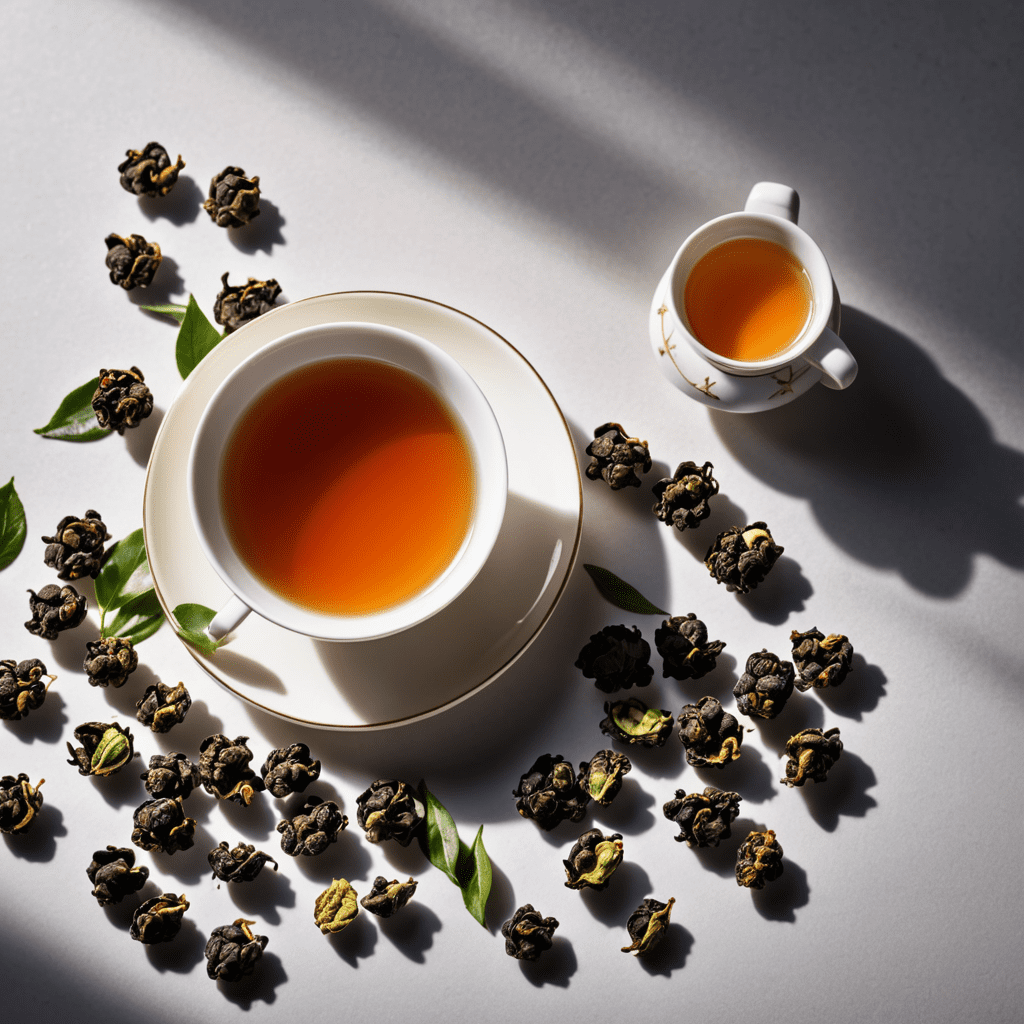Improve your Health with Tea: Understanding Antioxidant Levels
Subtitle: Exploring the Benefits of Antioxidant-rich Tea
Introduction:
Tea has been enjoyed for centuries as a soothing and invigorating beverage. Not only does it offer a wide range of flavors and aromas, but it also contains powerful antioxidants that can benefit our overall health. In this article, we will delve into the world of tea antioxidant levels, exploring its key elements, offering practical tips, and suggesting ways to incorporate it into your daily routine. So, grab a cup of your favorite tea and join us on this journey to better health!
Key Elements
- Types of Antioxidants in Tea:
Tea contains various antioxidants, such as polyphenols, catechins, and epigallocatechin gallate (EGCG). These compounds help combat oxidative stress in the body, reducing the risk of chronic diseases like heart disease, cancer, and diabetes.
- Antioxidant Levels in Different Tea Varieties:
Not all teas are created equal when it comes to antioxidant levels. Green tea, for instance, is known to have high levels of EGCG, making it a popular choice for those seeking maximum antioxidant benefits. Black tea, on the other hand, undergoes oxidation during processing, resulting in a different antioxidant profile.
- The Role of Processing:
The level of antioxidants in tea can be influenced by its processing methods. For instance, lightly processed teas like white tea and green tea retain more antioxidants compared to heavily processed teas like black tea and oolong tea. Understanding the processing methods can help you make informed choices based on your desired antioxidant intake.
Tips for Tea Antioxidant Levels
- Choose Loose Leaf Tea:
When it comes to tea antioxidant levels, opting for loose leaf tea is generally a better choice. Loose leaf teas usually contain larger, intact leaves that release more antioxidants during steeping compared to tea bags, which often contain broken tea leaves.
- Steep Properly:
To maximize the antioxidant benefits of your tea, make sure to steep it at the correct temperature and for the recommended duration. Over-steeping can result in a bitter taste, while under-steeping may yield a weaker infusion with fewer antioxidants.
- Explore Different Varieties:
While green tea is well-known for its high antioxidant content, don’t hesitate to explore other tea varieties. White tea, for instance, is prized for its delicate flavor and antioxidant-rich properties. Herbal teas, like chamomile or peppermint, may not contain catechins but still offer their own health benefits and antioxidant properties.
Incorporating Tea Antioxidant Levels
- Start your Day with Tea:
Replace your morning cup of coffee with a refreshing cup of green tea or another antioxidant-rich tea variety. Not only will you get a gentle caffeine boost, but you’ll also kick-start your day with a burst of antioxidants.
- Tea as a Snack:
Instead of reaching for a sugary, processed snack, consider enjoying a cup of tea. It can help satisfy your cravings while providing you with a dose of antioxidants. Pair it with a piece of fruit or a handful of nuts for a wholesome snack.
- Use Tea in Cooking:
Take your antioxidant intake to the next level by incorporating tea into your cooking. Add brewed tea to soups, stews, or marinades for a unique flavor profile and an antioxidant boost. Matcha powder, a powdered form of green tea, can be used in baked goods, smoothies, or even sprinkled over yogurt for added nutritional value.
FAQ about Tea Antioxidant Levels
Q: How much tea should I drink to reap the antioxidant benefits?
A: There is no specific recommended dosage, but incorporating 2-3 cups of tea into your daily routine can be a good starting point.
Q: Can I add milk to my tea without affecting its antioxidant levels?
A: Studies suggest that adding milk to tea may reduce the bioavailability of certain antioxidants. However, the overall impact on health benefits is still under debate.
Q: Are herbal teas as effective in terms of antioxidant levels?
A: Herbal teas may not contain catechins like green tea, but they offer their own unique antioxidant properties and health benefits.
Q: Can I reuse tea leaves to maximize antioxidant intake?
A: Reusing tea leaves won’t significantly increase antioxidant levels. It’s best to use fresh leaves for each cup to ensure optimal flavor and antioxidant content.
In conclusion, understanding tea antioxidant levels can help you make informed choices for your health and well-being. Whether you prefer green tea, black tea, or herbal teas, incorporating antioxidant-rich teas into your daily routine can provide a delightful and healthful experience. So, next time you brew a cup of tea, savor the flavors and embrace the goodness of antioxidants!


